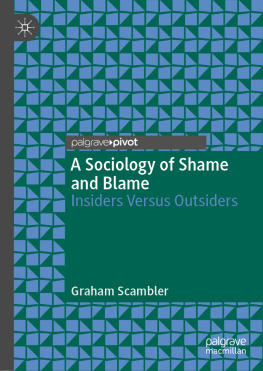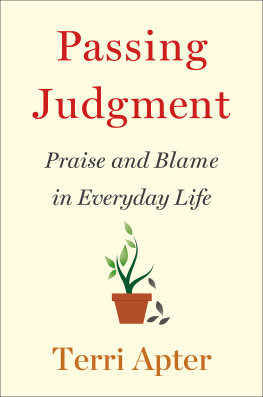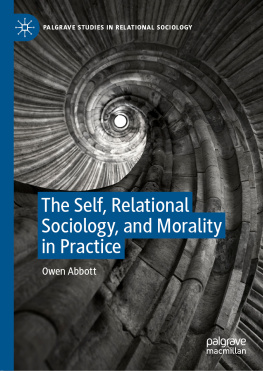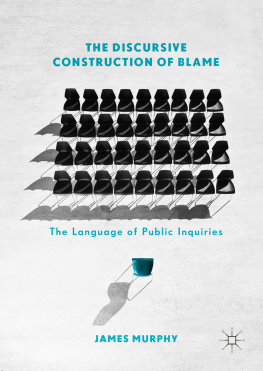Graham Scambler - A Sociology of Shame and Blame: Insiders Versus Outsiders
Here you can read online Graham Scambler - A Sociology of Shame and Blame: Insiders Versus Outsiders full text of the book (entire story) in english for free. Download pdf and epub, get meaning, cover and reviews about this ebook. year: 2019, publisher: Springer, genre: Politics. Description of the work, (preface) as well as reviews are available. Best literature library LitArk.com created for fans of good reading and offers a wide selection of genres:
Romance novel
Science fiction
Adventure
Detective
Science
History
Home and family
Prose
Art
Politics
Computer
Non-fiction
Religion
Business
Children
Humor
Choose a favorite category and find really read worthwhile books. Enjoy immersion in the world of imagination, feel the emotions of the characters or learn something new for yourself, make an fascinating discovery.
- Book:A Sociology of Shame and Blame: Insiders Versus Outsiders
- Author:
- Publisher:Springer
- Genre:
- Year:2019
- Rating:5 / 5
- Favourites:Add to favourites
- Your mark:
- 100
- 1
- 2
- 3
- 4
- 5
A Sociology of Shame and Blame: Insiders Versus Outsiders: summary, description and annotation
We offer to read an annotation, description, summary or preface (depends on what the author of the book "A Sociology of Shame and Blame: Insiders Versus Outsiders" wrote himself). If you haven't found the necessary information about the book — write in the comments, we will try to find it.
A Sociology of Shame and Blame: Insiders Versus Outsiders — read online for free the complete book (whole text) full work
Below is the text of the book, divided by pages. System saving the place of the last page read, allows you to conveniently read the book "A Sociology of Shame and Blame: Insiders Versus Outsiders" online for free, without having to search again every time where you left off. Put a bookmark, and you can go to the page where you finished reading at any time.
Font size:
Interval:
Bookmark:
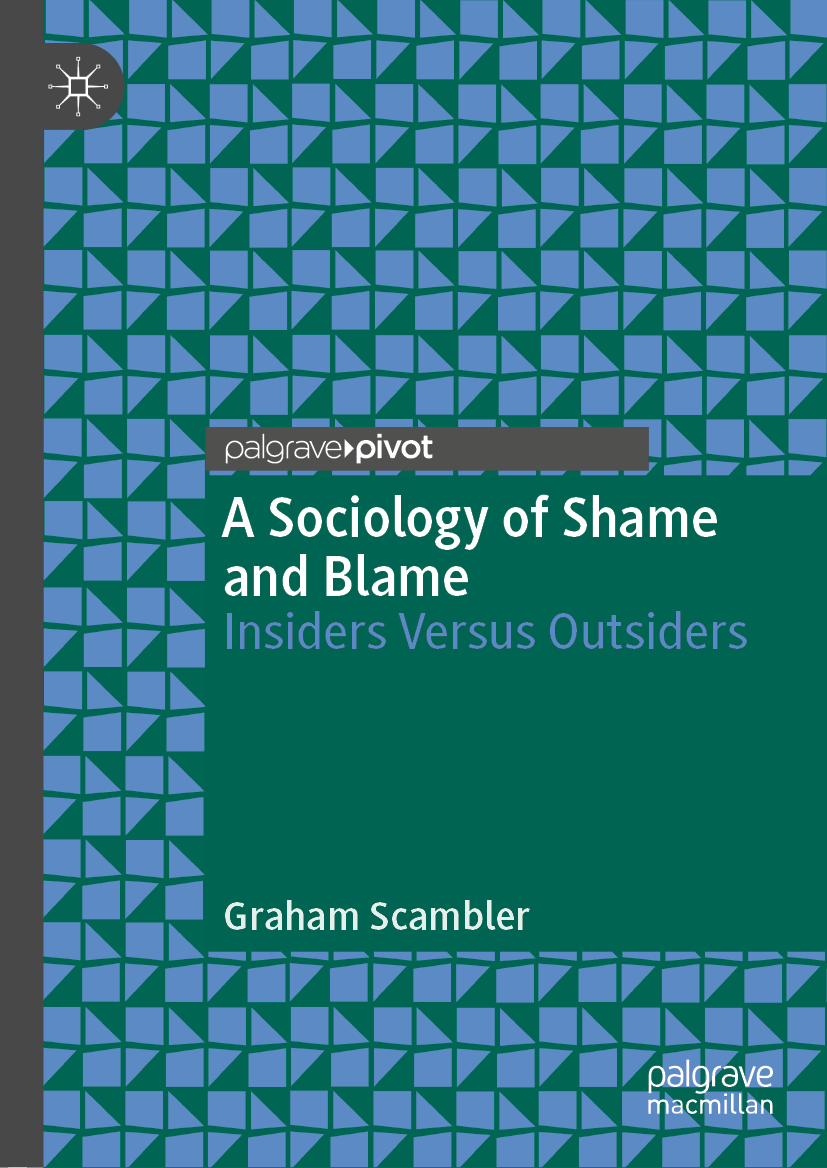

Cover illustration: Melisa Hasan
This Palgrave Pivot imprint is published by the registered company Springer Nature Switzerland AG
The registered company address is: Gewerbestrasse 11, 6330 Cham, Switzerland
This chapter sets out the major themes of this study of shame and blame. The first describes the relationships between agency, culture and structure. The second emphasises the importance of covering macro-, meso- and micro-perspectives. And the third focuses on the need to consider how change might be accomplished. The four principal reference groups used in the study are then introduced. These are migrants and refugees; the long-term sick and disabled; the homeless; and sex workers. The chapter ends by anticipating the contents of the remaining chapters in the book.
It is not possible to identify people as normal, able-bodied, moral, responsible, healthy, law-abiding, insiders, as belonging, and as a host of other positives, unless it is also possible for others in the same society, community or milieu to be seen as abnormal, disabled, immoral, irresponsible, sick, criminal, outsiders or as strangers . Positives are only possible if negatives are too, as Wittgenstein () affirmed in formulating his polar opposites argument. Moreover, these binary distinctions are not without discernible social functions. It was the proto-functionalist Durkheim , anticipating the dominant Parsonian paradigm in America in the 1950s, who noted that recognising, highlighting and sanctioning/punishing the negatives is important, or functional, for the continuing stability of social order. Conformance or compliance with the norms that define the social order at any given time and placethat is, that reproduce the status quorelies on the rooting out of misfits in all their heterogeneity and the variety and severity of the threats they represent.
Social control, as sociologists conventionally term it, can of course be exerted in the absence of overt coercion or repression. For example, in most developed societies it has long been theunsought and unwantedfunction of state-licensed physicians to police the sick to ensure they do not too long resist the capitalist imperative to work. Sanctioning and punishment can take many forms, from executions and imprisonment to barely perceptible strategies of avoidance. The former Labour MP Jack Ashley () recounted his experiences after suddenly and unexpectedly losing his hearing. In the House of Commons dining room soon after he noticed how quickly embarrassed colleagues, even friends, made excuses to slip away, unable, unwilling or simply too impatient to cope with improvised modes of communication. Insiders versus outsiders is a template that allows for an extensive reach, as this volume bears testimony.
So all societies and segments within them, from actual regions, localities, communities and neighbourhoods to their less (or almost un-)constrained virtual equivalents, have and act out these positive versus negative tensions. Many, if not all, such tensions involve attributions of shame and blame, and these provide the principal focus for this contribution. I shall draw a clear analytic distinction between the two, notwithstanding the tendency in everyday practice, in the lifeworld, to use them interchangeably. I shall deploy the term stigma to signal episodes of non-conformance. The stigmatised infringe against norms of shame. Their infringements do not imply non-compliance or culpability. It is as if they are imperfect beings. The contrast is with deviance. Deviance here refers to falling foul of norms of blame. Non-compliance is accented. Infringements bring condemnation: deviants are culpable. Whereas shame imputes an ontological deficit , deviance reflects a moral deficit .
Three principal themes run through this volume. The first acknowledges the ongoing interplay of agency , culture and structure in the mundane enactments or performance of shame and blame. Agency , I shall contend, is always contextualised by culture and structured (though never structurally determined). Consider the case of a young girl from Myanmar either sold by an impoverished family or trafficked to work in a brothel in Bangkok. The new culture into which she has been inserted is likely suffocating and oppressive to the point of social claustrophobia, yet it would be quite wrong in my view, and insulting, to count her agency as lost: agency can at most be subdued and temporarily misplaced or displaced. Safe sex and the sharing of needles might register low on priorities oriented to day-to-day survival, but neither her reflexivity nor her agency is ever entirely absent. Not even concentration camp confinement and brutality can cancel agency . Agency is part of being human.
Font size:
Interval:
Bookmark:
Similar books «A Sociology of Shame and Blame: Insiders Versus Outsiders»
Look at similar books to A Sociology of Shame and Blame: Insiders Versus Outsiders. We have selected literature similar in name and meaning in the hope of providing readers with more options to find new, interesting, not yet read works.
Discussion, reviews of the book A Sociology of Shame and Blame: Insiders Versus Outsiders and just readers' own opinions. Leave your comments, write what you think about the work, its meaning or the main characters. Specify what exactly you liked and what you didn't like, and why you think so.

